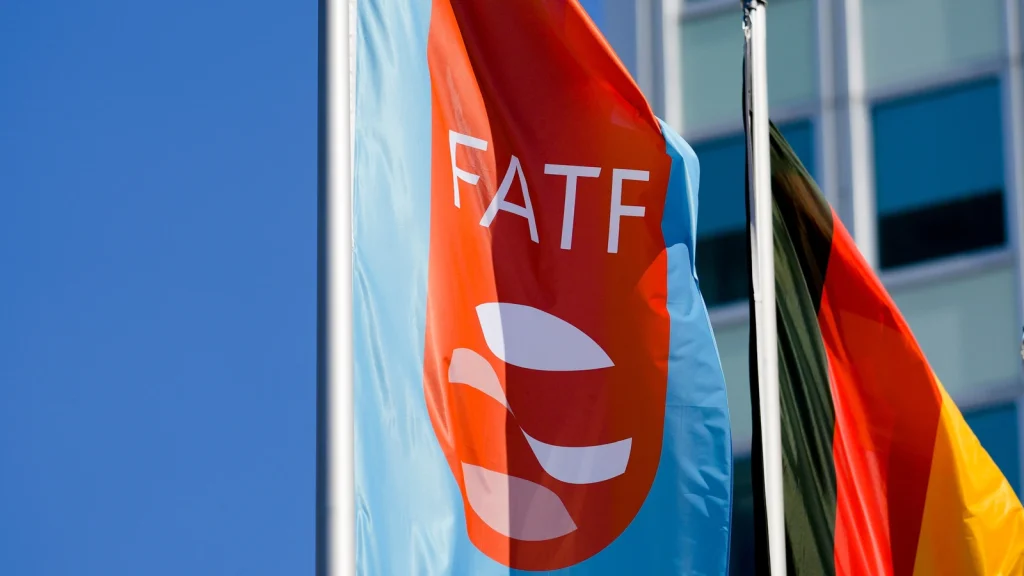In my recent online wanderings, I stumbled upon a headline that shook me to the core: “African countries on the global dirty money list in 2024.” This headline sparked a flurry of reactions, particularly among Tanzanians, who were stunned to find Tanzania listed among the countries implicated.
The Financial Action Task Force (FATF) released the list, which has left many questioning, “Global dirty money watchlist? Does this mean our nation is overrun with money laundering schemes?” However, for most, this list has cast a shadow of negativity.
I believe it’s high time Tanzanians and other concerned parties grasp the significance and purpose of this list.
Firstly, What Exactly is FATF?
The Financial Action Task Force (FATF) is at the forefront of global efforts to combat money laundering, terrorist financing, and proliferation financing. It’s an intergovernmental organization established by the G7 nations that spearheads worldwide action against these threats.
FATF advocates for global standards to mitigate these risks and assesses countries’ efforts to combat them. Through thorough research, it delves into the methods of money laundering and terrorist financing, advocating for global standards to mitigate these risks and evaluating the effectiveness of countries’ actions.
By continuously monitoring how criminals and terrorists handle funds, the FATF forces them to seek alternative ways to launder their illicit gains as countries implement effective measures to disrupt these flows. FATF regularly publishes reports to raise awareness about the latest techniques in money laundering, terrorist financing, and proliferation financing, empowering countries and the private sector to take necessary steps to mitigate these risks.
FATF holds non-compliant countries accountable by naming them Jurisdictions under Increased Monitoring or High-Risk Jurisdictions, often called “the grey and black lists.”
Read related: Stopping the Money Drain: Tackling Illicit Financial Flows in Tanzania.
As of February 2024, FATF had reviewed 131 countries and jurisdictions, publicly identifying 106. Of these, 82 have enacted the necessary reforms to address their anti-money laundering and counter-terrorism financing weaknesses and have consequently been removed from the monitoring process
Recently, there has been growing recognition among countries and organizations about the severity of money laundering and terrorism funding, prompting concerted efforts to combat these illicit activities. Weak anti-money laundering and counter-terrorism financing controls can provide loopholes for criminals to successfully launder money or channel funds to finance terrorist activities through the financial system.
Public disclosures like these also pressure identified jurisdictions to rectify their shortcomings and maintain their standing in the global economy. The act of public identification, or the mere possibility of it, catalyzes countries to implement substantial improvements swiftly.
Jurisdictions under increased monitoring actively collaborate with the FATF to address strategic deficiencies in their anti-money laundering and counter-terrorism financing regimes. When a jurisdiction is subject to increased monitoring, it indicates a commitment to promptly rectify identified strategic deficiencies within agreed timeframes, subjecting them to heightened scrutiny.
But What Does It Mean For a Jurisdiction to be Under Increased Monitoring?
This designation is assigned to regions or areas that warrant closer observation by regulatory bodies, law enforcement agencies, or other authorities. This monitoring could involve a range of factors, including:
- Financial Activities: Jurisdictions may be subject to increased monitoring if they suspect money laundering, terrorist financing, or other illicit financial activities within their borders.
- Regulatory Compliance: Some jurisdictions may be monitored more closely if they have a history of regulatory non-compliance or concerns about the effectiveness of their regulatory oversight. This could include issues related to banking regulations, securities laws, tax compliance, or corporate governance standards.
- Security Threats: In cases of heightened security threats, such as terrorism or organized crime, jurisdictions may be subject to increased monitoring by law enforcement agencies or international security organizations. This monitoring may involve identifying and addressing potential security risks within the jurisdiction.
- Human Rights Concerns: Jurisdictions with a history of human rights abuses or violations may also be monitored more closely by human rights organizations, governmental bodies, or international institutions. This monitoring aims to draw attention to human rights issues, hold responsible parties accountable, and advocate for improvements in human rights protections.
Tanzania Being Listed in Grey List or Black List
The List of African Countries In Global Dirty Money Watchlist 2024 From @FATFNews
1. Burkina Faso 🇧🇫 (Grey listed since Feb. 2021)
2. Cameroon 🇨🇲 (Grey listed since June 2023)
3. Democratic Republic of Congo 🇨🇩 (Grey listed since October 2022)
4. Kenya 🇰🇪 (Grey listed since… pic.twitter.com/RHktMUmbdB— Tanzania Digest (@TanzaniaDigest) March 15, 2024
To be “grey-listed” typically refers to a situation where a country, jurisdiction, or entity is placed on a list of entities subject to increased scrutiny or monitoring due to concerns about their compliance with certain standards or regulations. This designation falls between being “white listed,” indicating full compliance, and being “blacklisted,” indicating significant deficiencies or non-compliance.
When a jurisdiction is grey-listed, it is not yet fully compliant with the required standards but has committed to making necessary reforms to address identified deficiencies. Grey listing can occur in various contexts, including financial regulation, anti-money laundering efforts, tax compliance, or regulatory oversight.
Also, read: Africa’s Debt Crisis Report: IMF Releases List of Top Ten African Countries with the Highest Debts.
Since October 2022, Tanzania has been working closely with international organizations to improve its efforts against money laundering and terrorism financing. This includes training law enforcement officers to investigate and prosecute money laundering cases and fixing technical issues related to tracking suspicious financial activities. Tanzania needs to keep working on its plan to address areas where it is not meeting international standards.
This includes ensuring banks and other financial institutions are properly supervised, improving the ability to investigate and prosecute money laundering cases, seizing assets obtained through crime, and developing strategies to combat terrorism financing. It’s also important to educate businesses and government agencies about the risks of terrorism financing and assess the risks posed by non-profit organizations.
How Did We Reach Here?
The National Audit Office of Tanzania (NAOT) provided a performance audit report on implementing national initiatives to combat money laundering in March 2020 as implemented by the Ministry of Finance and Planning through the national multi-disciplinary committee on anti-money laundering and the financial intelligence unit.
The objective of the audit was to determine whether the Ministry of Finance and Planning (MoFP), through the Financial Intelligence Unit
(FIU) has appropriately designed and implemented a management framework for combating money laundering in the country to
promote the detection and deterrence of money laundering.
The Audit Findings: The audit team noted the lack of an anti-money laundering policy to guide national initiatives to combat Money Laundering in the country. However, the government, through the Ministry of Finance and Planning (MOFP), under the advice of the National Multi-Disciplinary Committee on Anti-Money Laundering (NAMLC), managed to conduct a National Money Laundering and Terrorist Financing Risk Assessment from September 2015 to December 2016.
The assessment, coordinated by the Financial Intelligence Unit (FIU), revealed that 19 sectors of the economy were vulnerable to money laundering abuse, and 33 different criminal activities posed threats to money laundering. Despite these findings, no national policy has been developed to guide efforts to combat money laundering.
Nineteen sectors of the economy are at risk of money laundering abuse. Of these, only four sectors, equivalent to 21%, have been issued guidelines for compliance with anti-money laundering requirements. The remaining fifteen sectors do not have such guidelines.
The Financial Intelligence Unit (FIU) is responsible for issuing these guidelines in collaboration with regulators. However, many sectors lacking guidelines do not have designated regulators.
A few inspections were conducted on reporting persons to ensure compliance with anti-money laundering requirements, especially submission of the Suspicious Transactions Reports. Inspections were mostly planned and conducted on banks and electronic money issuers from 2016/17 to 2018/19.
A few inspections were due to a lack of regulators for many sectors. Only financial institutions such as banks have well-structured mechanisms for ensuring compliance with anti-money laundering requirements. This is due to a regulator (Bank of Tanzania) that can sanction financial institutions that do not comply with the anti-money laundering requirements.
What Can Be Done to Improve/Recommendations
To strengthen Tanzania’s anti-money laundering (AML) capabilities, the Ministry of Finance and Planning should ensure that the Financial Intelligence Unit (FIU) and other relevant agencies are fully equipped with the necessary resources and capabilities to implement AML strategies effectively.
A comprehensive anti-money laundering policy and strategy should be developed to facilitate swift and effective nationwide implementation. This includes forming a regulatory framework for all currently unregulated sectors and standardizing reporting protocols to enhance the consistency and reliability of AML information dissemination.
Concurrently, the Financial Intelligence Unit must rigorously enforce compliance, ensuring all entities submit Suspicious Transaction Reports promptly and accurately. It should work to harmonize inspection processes with other regulatory bodies to eliminate duplication and efficiently address non-compliance.
Additionally, the FIU should bolster training and awareness programs to improve voluntary compliance and maintain accurate and accessible AML statistics for strategic use.
Implementing these measures will enhance Tanzania’s overall AML framework, increase regulatory coverage, and improve compliance, contributing significantly towards the country’s efforts to exit the FATF grey list. This unified approach will ensure robust enforcement and comprehensive monitoring across all sectors, positioning Tanzania better in the global financial system.


